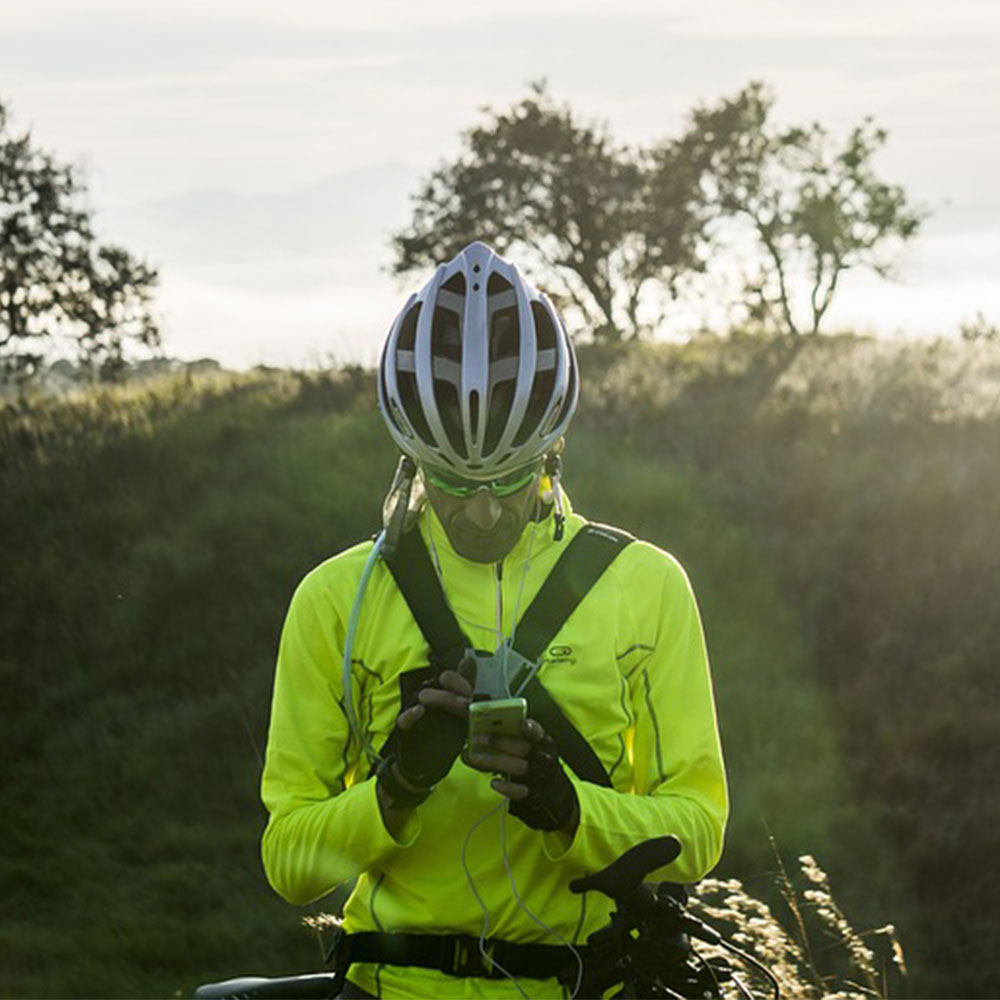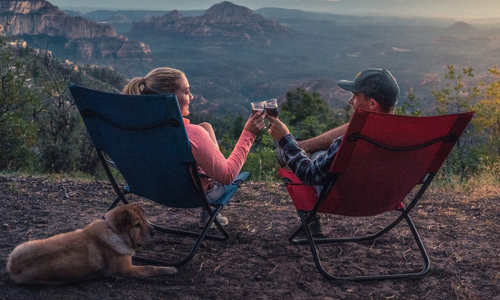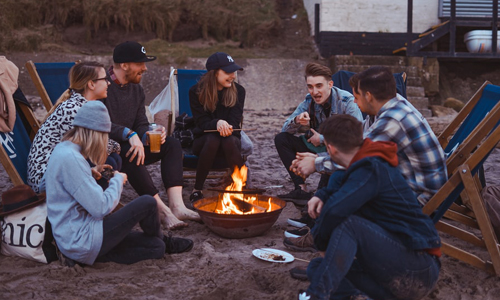Camp in a Way Others Won’t Have to Deal with Your Waste
Author

Chris shares his passion for cycling, hiking, skiing, and climbing from Buxton, in the Peak District. As a blogger for Outdoor Look, Chris shares outdoor tips and indoor tricks to help you get the most out of your time spent outside. When he's not out adventuring he's making videos or trying to keep up with his 4-year-old son.
Camping or hiking is something an adventurous person looks forward to as soon as the spring season comes. However, it is important to leave no traces of your camping trip after you have had your fun. It helps protect the natural surroundings and the wildlife around those parts. You also don’t want to be an unwanted burden on the people who maintain these tracks and trails. So, here are some ways you can avoid being a menace to the next camper who comes to hike at your old spot.

Do Your Homework
Like any good hiker or camper, make sure you do your homework and know the ins and outs of the area you are heading to. Bring all the things that you may or may not need while camping so you stay protected in extreme weather conditions. Bring a map and compass with you to stay on track and not lose your way back to your car or camp site. If you are taking your pet, don’t forget to carry a leash and waste bags.
Make Sure You Take Back What You Brought
When we go on trips, we take a lot of canned foods, snacks, candy bars, trunk full of beer bottles and what not. But when you leave your camp sport, make sure you leave no trace of you being there and no waste suggesting otherwise. Carry enough napkins and bags to store all the waste and dump it properly. Preferably in a dumpster or dustbin, if there is a provision for one near the campsite.
Don’t Go off Road
While we are hiking on trails, we forget that we are not the only ones hiking or cycling. There may be other people there as well and you need to be considerate of them along with the flower beds or shrubs and trees that are growing on the either side of your track. Don’t step on them or don’t go exploring someone else’s private property, however beautiful you find it.

Set Up at Old Spots
While camping outdoors or going for a weekend trip, it is difficult to decide where to set camp. However, in order to protect nature and the land, make sure you find a spot that has already been used as a camp site. You can identify these areas easily as there is lesser or no grass growth in these plots because of prolonged use and damage from fire. This way you are also protecting nature and the wildlife residing around the woods.
Dispose Off Your Waste Properly
Whether it’s your pets or yourself and your travelling partners, if you head out to a campsite, there is sure to be some waste or faeces. This waste needs to be disposed off properly using garbage disposal bags. Try to bury your waste near a tree so that it can act as manure or dispose it off in a dustbin if you don’t have outhouses or portable washroom facilities available around you. Also, make sure that you don’t contaminate the water bodies near you with soap or waste.
Lastly, my advice is don’t obsess over a campfire if you can’t build one. You can use a camp stove to cook but if you really wish to light up a campfire, use fire rings. Take note that you should not damage nature and only build your fire with fallen logs and twigs. Make sure that the fire is completely burned out before you leave the campsite and collect the ashes so that you can dump it later.
Author

Chris shares his passion for cycling, hiking, skiing, and climbing from Buxton, in the Peak District. As a blogger for Outdoor Look, Chris shares outdoor tips and indoor tricks to help you get the most out of your time spent outside. When he's not out adventuring he's making videos or trying to keep up with his 4-year-old son.
- Speed Up Your Post-Hike Recovery with These 6 Essential Tips
- Cycling through Tranquil Roads and Coastal Views on the Isle of Wight
- The Essential Guide to Hiking Safety: 5 Tips Every Hiker Should Know
- Run Smart, Run Strong: Your Guide to Injury-Free Running
- Embrace Biking: Essential Tips for Beginners
Categories
- Sport (28)
- Product Reviews (3)
- Team Outdoor Look (7)
- Mike Wild (2)
- Mike Payton (2)
- Suse Hammond-Pears (3)
- Snowboarding (12)
- Latest Offers (105)
- Shop Talk (1)
- Competitions (7)
- Walking (413)
- Lifestyle Fashion (8)
- Travel (86)
- Kit Guides (176)
- Workwear Clothing (6)
- Safety Workwear (4)
- Health/Fitness (289)
- Skiing (91)
- Great Outdoors (1316)
- Cycling (92)
- January 2025
- December 2024
- November 2024
- October 2024
- September 2024
- August 2024
- July 2024
- June 2024
- May 2024
- April 2024
- March 2024
- February 2024
- January 2024
- December 2023
- November 2023
- October 2023
- September 2023
- August 2023
- July 2023
- June 2023
- May 2023
- April 2023
- March 2023
- February 2023
- January 2023
- December 2022
- November 2022
- October 2022
- September 2022
- August 2022
- July 2022
- June 2022
- May 2022
- April 2022
- March 2022
- February 2022
- January 2022
- December 2021
- November 2021
- October 2021
- September 2021
- August 2021
- July 2021
- June 2021
- May 2021
- April 2021
- March 2021
- February 2021
- January 2021
- December 2020
- November 2020
- October 2020
- September 2020
- August 2020
- July 2020
- June 2020
- May 2020
- April 2020
- March 2020
- February 2020
- January 2020
- December 2019
- November 2019
- October 2019
- September 2019
- August 2019
- July 2019
- June 2019
- May 2019
- April 2019
- March 2019
- February 2019
- January 2019
- December 2018
- November 2018
- October 2018
- September 2018
- August 2018
- July 2018
- June 2018
- May 2018
- April 2018
- March 2018
- February 2018
- January 2018
- December 2017
- November 2017
- October 2017
- September 2017
- August 2017
- July 2017
- June 2017
- May 2017
- April 2017
- March 2017
- February 2017
- January 2017
- December 2016
- November 2016
- October 2016
- September 2016
- August 2016
- July 2016
- June 2016
- May 2016
- April 2016
- March 2016
- February 2016
- January 2016
- December 2015
- November 2015
- October 2015
- September 2015
- August 2015
- July 2015
- June 2015
- May 2015
- April 2015
- March 2015
- February 2015
- January 2015
- December 2014
- November 2014
- October 2014
- September 2014
- August 2014
- July 2014
- June 2014
- May 2014
- April 2014
- March 2014
- February 2014
- January 2014
- December 2013
- November 2013
- October 2013
- September 2013
- August 2013
- July 2013
- June 2013
- May 2013
- April 2013
- March 2013
- February 2013
- January 2013
- December 2012
- November 2012
- October 2012
- September 2012
- August 2012
- July 2012
- June 2012
- May 2012
- April 2012
- March 2012
- February 2012
- January 2012
- December 2011
- November 2011
- October 2011
- September 2011
- August 2011
- May 2010
- April 2010
- March 2010
- February 2010
- January 2010
- November 2009
- October 2009
- September 2009


Submit a Comment